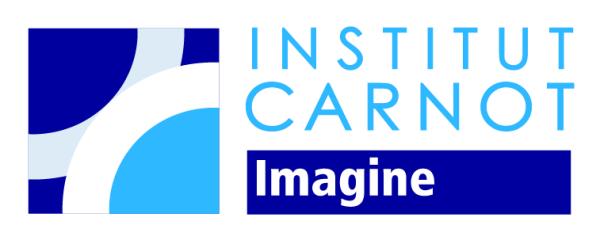Published on 12.05.2021
Expanding the indication for infigratinib to treat achondroplasia
Achondroplasia is the most common form of dwarfism and affects around one in 20,000 births. The story dates back to 1994 and the discovery of the cause of achondroplasia at the Paris AP-HP Necker-Enfants malades hospital. The culprit is the FGFR3 gene: when it mutates it produces an excess of the FGFR3 protein, which is present on the chondrocytes (cartilage cells) and osteoblasts (early cells to form new bone). Over-expression of the gene affects bone growth and ossification, the mechanism that changes cartilage tissue into bone.
Since the discovery was made, the Molecular and Physiopathological Bases of Osteochondrodysplasia Team at Imagine, a Carnot Institute labeled Institute, has worked ceaselessly to understand the resulting disorder of the skeletal system and to develop cell and animal models to test molecules and develop new therapeutic options for patients.
The FGFR3 protein is one of four tyrosine kinase signaling receptors that interact with the proteins that control signaling of the fibroblast growth factors (FGF). Disorders of this pathway play a role in development problems like dwarfism and craniostenosis, as well as in a broad range of cancers. The team looked into tyrosine kinase inhibiting molecules that can counteract overactivity of the protein and which are already used in cancer treatments.
In 2016, Dr Laurence Legeai-Mallet published the results of research ongoing since 2014 which showed how the NVP-BGJ398 molecule iInfigratinib) worked. At the time, infigratinib was being developed by Novartis and was in clinical trials for bladder cancer patients. “This molecule reduces phosphorylation of FGFR3, which causes its hyperactivity, and corrects abnormal growth in our animal models. We have shown that a low dose injected subcutaneously can penetrate into the growth plate of these models and alter how it is organized,” explained Laurence Legeai-Mallet. The researcher patented the use of the molecule to treat achondroplasia.
From lab bench to patient bedside
Galvanized by the team’s discoveries and convinced of the potential to quickly develop an effective drug therapy, in 2018, BridgeBio, a US investor specializing in rare diseases, acquired the patent for infigratinib from Novartis and the patent for its application in the treatment of achondroplasia from Laurence Legeai-Mallet. BridgeBio then formed QED Therapeutics, a start-up dedicated to FGFR-driven diseases and conditions and the development of infigratinib. Laurence Legeai-Mallet, who sits on the company’s scientific advisory board, conducted research to support investigation of low-dose infigratinib in achondroplasia. She is continuing her translational research on other models.
QED Therapeutics started an international clinical trial in 2020. The first trial participant to receive infigratinib in July 2020 was a child with achondroplasia in Melbourne, Australia. Coordinated by the AP-HP Necker-Enfants malades hospital and the Imagine Institute, the trial is now under way in France with a first child receiving the experimental treatment at Necker hospital. Dr Kim-Hanh Le Quan Sang, Dr Geneviève Baujat and Prof. Valérie Cormier-Daire are among the lead physicians.
The continuing development of this drug therapy is a compelling example of the type of translational research conducted at a university hospital like Imagine. It shows how effective our circular flow research model is, which begins with the patient, progresses through basic research, pre-clinical studies and model development and loops back to the patient.
Our ecosystem includes industry partners, innovation and technology transfer to quickly translate research into applications for patients, said Prof. Stanislas Lyonnet, Director of the Imagine Institute.
About AP-HP:
The leading university hospital group in Europe, AP-HP and its 39 hospitals are organized into six university hospital groups (AP-HP. Centre - University of Paris; AP-HP. Sorbonne University; AP-HP. North - University of Paris; AP-HP. University Paris Saclay; AP-HP. University Hospitals Henri Mondor and AP-HP. University Hospitals Paris Seine-Saint-Denis) and five universities in the Ile de France region. With strong links to leading research bodies, AP-HP includes three global university hospital research centers (ICM, ICAN and IMAGINE) and the largest French health data warehouse. A major player in applied research and innovation in health, AP-HP has a portfolio of 650 active patents, our clinician-researchers publish nearly 9,000 scientific papers each year and more than 4,000 research projects are currently under development, across all sponsors. In 2020, the AP-HP was granted Carnot Institute certification in recognition of excellence in partnership research. Carnot@AP-HP provides the industry with applied and clinical research solutions in health. In 2015, the AP-HP established the AP-HP Foundation for Research to support biomedical and health research in all its hospitals. http://www.aphp.fr
About Institut Imagine:
In a building designed by Bernard Valéro and Jean Nouvel on the campus of Hôpital Necker-Enfants Malades (AP-HP), the Imagine Institute, a Carnot institute, is the leading center for research, care and teaching on genetic diseases. The Institute brings together 1,000 of the best doctors, researchers and healthcare professionals in an environment which fosters synergies. It is this original continuum of expertise, combined with the proximity of patients, which allows Imagine to make discoveries to benefit the patients. Some 9,000 identified genetic diseases affect 35 million patients in Europe, and nearly 3 million in France, where there are 30,000 new cases each year. Nearly 60% of children that have a consultation leave without a genetic diagnosis, and 90% of genetic diseases do not yet have a curative treatment. We have two major challenges faced with this major public health issue: diagnose and cure www.institutimagine.org/fr
About Université de Paris
Specializing in intensive multidisciplinary research, Université de Paris ranks as one of the most prestigious French and international universities for high-level research, excellence in teaching and training, support for innovation and its active contribution to creating the European research and training ecosystem.
The University of Paris hosts 61,000 students, 4,500 lecturers and researchers, 22 graduate schools and 142 research labs. Visiter u-paris.fr.



